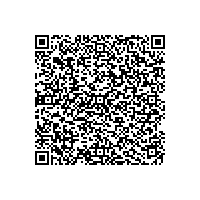The role of the mass media in managing the Corona Virus Pandemic “A field study from the point of view of faculty members working in political science departments in Jordanian Universities”
DOI:
https://doi.org/10.25255/jss.2021.10.1.1.16Palabras clave:
the mass media, the Coronavirus pandemic, faculty members at Jordanian universitiesResumen
This study aimed to identify the role of the media in managing the Coronavirus pandemic, “a field study from the point of view of faculty members in the political science departments in Jordanian universities.” The researcher used the descriptive analytical method and the comprehensive survey method. A questionnaire, had been designed for this purpose and distributed on the study population which consisted of 75 faculty members, through which 56 questionnaires were analyzed using the (SPSS) program. The study found an impact of the media in managing the Coronavirus pandemic, a field study from the point of view of faculty members working in political science departments in Jordanian universities. The study recommended the following: Adopting targeted and studied media programs at appropriate times for citizens, adopting the principle of limpidity and objectivity in conveying the facts, setting deterrent sanctions for those who spread rumors related to the crisis and tend to exaggerate its effects.
Descargas
Citas
Abuhashesh, M., & Al-Dmour, R. (2018). Factors that impact job satisfaction and performance among employees in the Jordanian industrial sector. Proceedings of the 32nd International Business Information Management Association Conference, IBIMA 2018 - Vision 2020: Sustainable Economic Development and Application of Innovation Management from Regional expansion to Global Growth, 4285-4305.
Al Azmi, N., Al-Lozi, M., Zu’bi, M., & Dahiyat, S. (2012). Patients attitudes toward service quality and its impact on their satisfaction in physical therapy in KSA hospitals. European Journal of Social Sciences, 34(2), 300-314.
Al-Dmour, R., & Yassine, O. (2018). A review of literature on the associations among employee empowerment, work engagement and employee performance. Modern Applied Science, 12(11), 313-329.
Al-Dmour, H., Masa’deh, R., Salman, A., Abuhashesh, M., & Al-Dmour, R. (2020). Influence of social media platforms on public health protection against the COVID-19 pandemic via the mediating effects of public health awareness and behavioral changes: integrated model. Journal of Medical Internet Research, 22(8), e19996.
Alrowwad, A.,& Abualoush, S. (2020). Innovation and intellectual capital as intermediary variables among transformational leadership, transactional leadership, and organizational performance. Journal of Management Development, 39(2), 196-222.
Bunker, D., Levine, L., & Woody, C. (2015). Repertoires of collaboration for common operating pictures of disasters and extreme events. Information Systems Frontiers, 17(1), 51-65.
Bunker, D., Stieglitz, S., Ehnis, C., et al. (2019). Bright ICT: Social media analytics for society and crisis management. In: International working conference on transfer and diffusion of IT, Accra, Ghana, 21–22 June 2019, pp. 536–552. Cham: Springer International Publishing.
Chen, S., Yang, J., Yang, W., Wang, C., & Bärnighausen, T. (2020). COVID-19 control in China during mass population movements at New Year. Lancet, 395, 764-6. https://doi.org/10.1016/ S0140-6736(20)30421-9.
Casero-Ripollés, Andreu (2020). Impact of Covid-19 on the media system. Communicative and democratic consequences of news consumption during the outbreak. El profesional de la información, 29(2), 290223.
Habermas, Jürgen (2006). Political communication in media society: Does democracy still enjoy an epistemic dimension? The impact of normative theory on empirical research. Communication theory, 16(4), 411-426. https://doi.org/10.1111/j.1468-2885.2006.00280.x
Kovach, Bill & Rosenstiel, Tom (2007). The elements of journalism: What newspeople should know and the public should expect. New York: Three Rivers Press. ISBN: 978 0 307346704.
Masa’deh, R., Al-Henzab, J., Tarhini, A., & Obeidat, B. (2018). The associations among market orientation, technology orientation, entrepreneurial orientation and organizational performance. Benchmarking: An International Journal, 25(8), 3117-3142.
OECD Policy Responses to Coronavirus (COVID-19) (2020). The territorial impact of COVID-19: Managing the crisis across levels of government.
World Health Organization (WHO) (2020). Novel Coronavirus (2019-nCoV) situation report–13. Available at: https://www.who.int/docs/default-source/coronaviruse/situation-reports/20200202-sitrep-13-ncov-v3.pdf (accessed 13 May 2020).
Arabic references translated
Al Ma’ad Al Demograti AlWatani (NDI) (2020), a practical guide for politicians to deal with the emerging COVID-19 pandemic is available at (https://www.ndi.org/).
Al-Zubaidi, Naseer (2010), the United States of America and its management of international crises, an applied analytical study, Ph.D. thesis in political science, clements.st international university, Baghdad, Iraq.
Majila Deri Al Watan, the role of (2/4/2020). Media in facing crises Coronavirus as a model nationshield.ae/index.php/home/details/research
Al-Maani, Mudar (2020), the Distinction of Jordan's Model in Confronting the Corona Pandemic Crisis, Ammon Website, 14/4/2020. https://www.ammonnews.net/article/530637
Al-Kurdi, Khawla (2020), Jordan is the strongest in facing Corona, the Jordanian newspaper Al-Ghad, dated 7/4/2020, https://alghad.com
6- Tarawneh, Muhammad (2020), Jordanian Media Freedom Under Coronavirus: Unjustified Restrictions Available at: (https://www.alaraby.co.uk/)
Assaf, Shatha (2020), The Role of Media in Confronting Coronavirus, Al-Dustour Newspaper, Saturday, June 13, 2020. (https://www.addustour.com/articles/1156097)
Ghassan Qassem Dawood Al-Lami, Khaled Abdullah Ibrahim Al-Issawi (2015), Crisis Management Basics and Applications, Oman, Wael House for Publishing and Distribution.
Center for Strategic Studies (2020), Jordan after Corona.











 a Creative Commons Attribution 4.0 International License.
a Creative Commons Attribution 4.0 International License.

